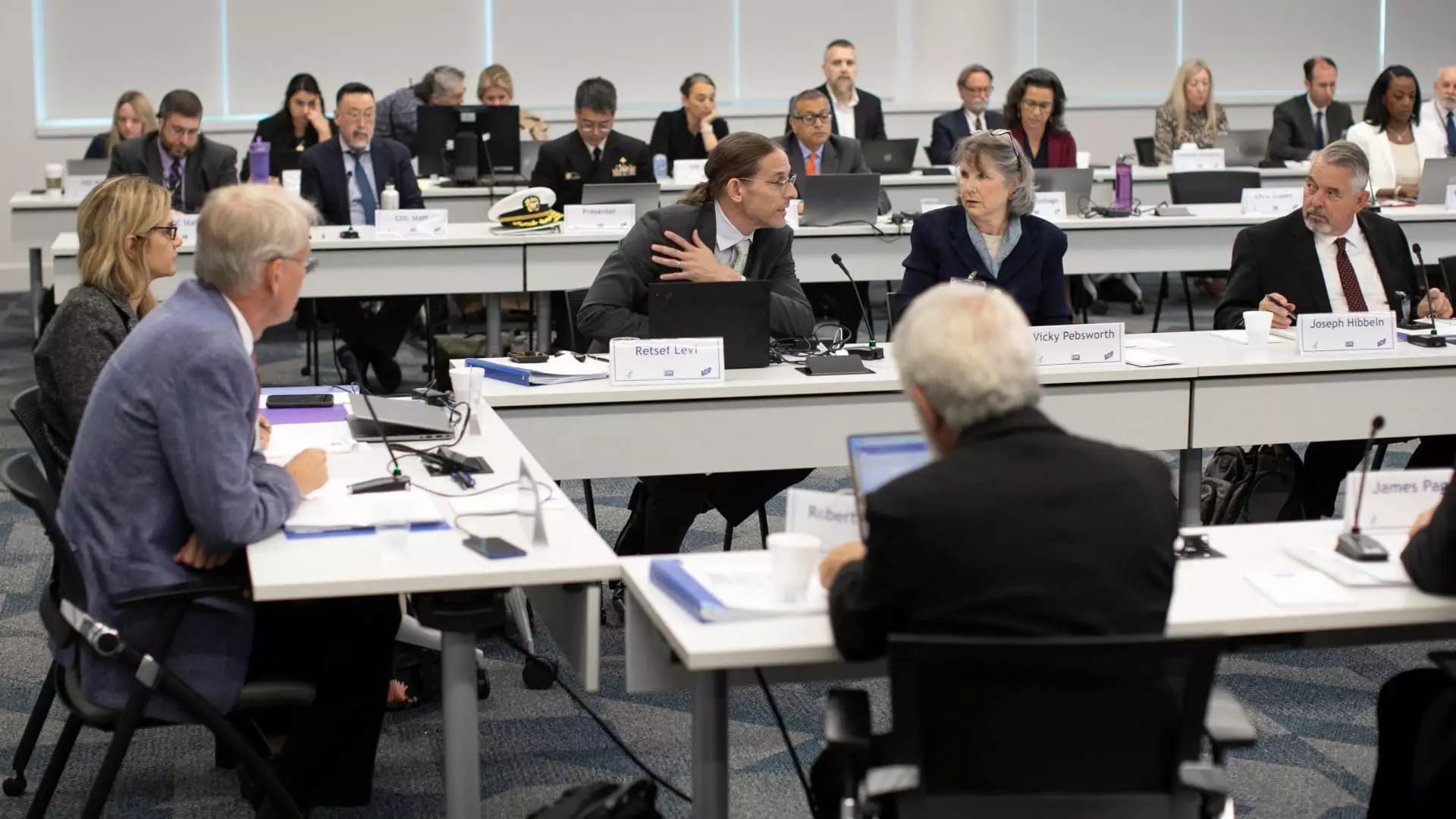In a startling move that challenges the foundation of effective public health policy, the vaccine advisory committee recently downgraded Covid vaccination recommendations from a universal approach to one centered on individual decision-making. This decision to prioritize “shared clinical decision-making” reflects a profound shift that could have dire consequences for the country’s collective health. By emphasizing personal choice over established, science-based guidelines, the government risks eroding the progress made in controlling the pandemic and exposing vulnerable populations to unnecessary risks.
This move demonstrates a troubling departure from the prior consistent message: Covid vaccines are a crucial tool in safeguarding public health. When the committee advocates that Americans—a broad demographic including children and pregnant women—should only get vaccinated after consulting with a healthcare provider, it sends a message of uncertainty rather than reassurance. While patient autonomy is vital, it cannot eclipse the necessary emphasis on widespread vaccination if society is to achieve herd immunity and prevent overwhelming healthcare systems. Sacrificing the principle of a unified vaccination push in favor of nebulous individual discretion reintroduces the chaos and skepticism that plagued the early months of the pandemic.
The Political Ties That Corrupt Medical Recommendations
The recent appointment of critics of mRNA vaccines to the advisory panel raises serious questions about the integrity and independence of U.S. health agencies. Robert F. Kennedy Jr., acting as a political appointee, has reshaped the panel, ousting qualified experts and replacing them with skeptics who cast doubt on vaccine safety and efficacy. Such politicization of expert panels is not just a betrayal of scientific objectivity but a calculated move that aligns health policies with politically motivated narratives rather than evidence-based medicine.
The fact that these controversial appointments are coupled with a deliberate weakening of vaccine recommendations suggests a political agenda rather than a genuine concern for public health. The resulting confusion among Americans—especially among those already hesitant or misinformed—creates a fertile ground for disinformation to flourish. Instead of building trust through transparent, science-driven policies, the government now appears to be capitulating to fringe voices, further polarizing the vaccination effort and undermining years of progress.
The Reality of Vaccine Efficacy and Safety Ignored
Despite the political turmoil surrounding Covid vaccine recommendations, scientific evidence continues to affirm the safety and effectiveness of these vaccines, particularly mRNA formulations from Pfizer and Moderna. Studies published in reputable journals, including the recent findings in JAMA Network Open, confirm that a universal vaccination approach could significantly prevent hospitalizations and save lives—potentially millions worldwide.
Yet, the new guidance based on individual discretion disregards this critical body of evidence. Such a stance risks eroding herd immunity and prolonging the pandemic. It also opens the door to personalized decisions that may be influenced more by misinformation or complacency than by science. The claim that vaccines might not work as intended, propagated by some critics on the panel, is largely unfounded. Serious side effects remain rare and manageable; the benefits far outweigh the minimal risks. Creating an environment where vaccine access becomes conditional or contested ultimately weakens the defense against a virus that still poses a serious threat to public health.
The Impact of Regulatory and Insurance Changes
The divergence between federal recommendations and state-level policies highlights the chaotic landscape of Covid vaccine implementation. While some Democratic-led states continue to promote broad vaccination, others adopt a more cautious stance influenced by the new guidelines. This inconsistency fosters confusion among the public and complicates efforts to achieve uniform coverage and protection.
Simultaneously, health insurers—powerful stakeholders in the healthcare system—are continuing to cover vaccines recommended by the existing advisory panel, regardless of political shifts. This disconnect underscores the importance of private sector resilience and their role in upholding vaccine access. Nevertheless, insurance coverage alone cannot compensate for the erosion of federal mandates, which historically have been instrumental in motivating widespread immunization efforts. Without cohesive, science-based national guidance, vaccination rates could stagnate or decline, leaving the unvaccinated population vulnerable to severe disease and death.
The Broader Consequences for Society and Public Trust
Weakening vaccine recommendations in favor of a rhetoric focused on individual choice not only jeopardizes immediate health outcomes but also threatens the very fabric of societal trust. When people perceive that public health agencies are swayed by political motives or disconnected from scientific consensus, they become skeptical of official guidance. This skepticism diminishes compliance and fosters vaccine hesitancy—a dangerous obstacle in managing current and future health crises.
Moreover, the strategy of relying solely on individual decision-making neglects the reality that many Americans lack the necessary information or resources to make informed choices. Vulnerable groups—such as rural populations, children, and pregnant women—are at heightened risk if access to vaccines becomes uneven or based on personal discretion rather than universal recommendation.
In a time when misinformation runs rampant, and the stakes are astronomically high, abandoning universal vaccination guidelines amounts to playing with fire. It risks prolonging the pandemic, overburdening health systems, and ultimately costing more lives than any perceived benefit of promoting personal choice. If the goal is truly safeguarding the nation’s health, science and consistency must remain central—not political expediency or ideological concessions.


Leave a Reply